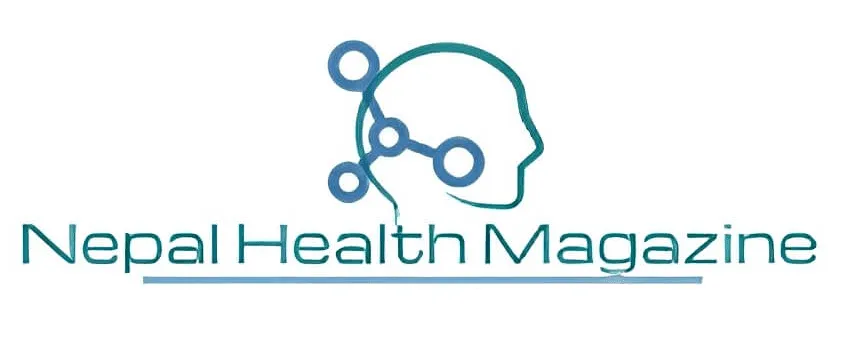Table of Contents
What is Digital documentation of COVID-19 certificates?
Digital documentation of COVID-19 certificates | WHO : A vaccination certificate is a health document that records a vaccination service received by an individual, traditionally as a paper card noting key details about the vaccinated individual, vaccine administered, date administered, and other data in the core data set . Digital vaccination certificates are immunization records in an electronic format that are accessible by both the vaccinated person and authorized health workers, and which can be used in the same way as the paper card: to ensure continuity of care or provide proof of vaccination. These are the two scenarios considered in this document . A vaccination certificate can be purely digital (e.g. stored in a smartphone application or on a cloud based server) and replace the need for a paper card, or it can be a digital representation of the traditional paper-based record . A digital certificate should never require individuals to have a smartphone or computer. The link between the paper record and the digital record can be established using a one-dimensional (1D) or two-dimensional (2D) barcode, for example, printed on or affixed to the paper vaccination card. References to the “paper” record in this document mean a physical document (printed on paper, plastic card, cardboard, etc

Scope of Digital documentation of COVID-19 certificates
The scope of this document covers two scenarios of use for the DDCC:VS
1. CONTINUITY OF CARE: Vaccination records are an important part of an individual’s medical records, starting at birth. The Continuity of Care scenario describes the primary purpose of a vaccination certificate. The vaccination record shows individuals and caregivers which vaccinations an individual has received, as part of that individual’s medical history; it therefore supports informed decision-making on any future health service provision.
2. PROOF OF VACCINATION: Vaccination records can also provide proof of vaccination status for purposes not related to health care.
What are the minimum requirements to implement a DDCC:VS?
Digital vaccination certificates should meet the public health needs of each WHO Member State, as well as the needs of individuals around the world. They should never create inequity due to lack of access to specific software or technologies (i.e. a digital divide). The recommendations for the implementation of DDCC:VS must therefore be applicable to the widest range of use cases, catering to many different levels of digital maturity between implementing countries. The minimum requirements were developed accordingly, to allow the greatest possible flexibility for Member States and their implementer(s) to build a solution that is fit for purpose in the context of their overall health information systems.
The minimum requirements for a DDCC:VS are as follows.
→ The potential benefits, risks and costs of implementing a DDCC:VS solution should be assessed before introducing a DDCC:VS system and its associated infrastructure. This includes an impact assessment of the ethical and privacy implications and potential risks that may arise with the implementation of a DDCC:VS.
→ Member States must establish the appropriate policies for appropriate use, data protection and governance of the DDCC:VS to reduce the potential harms, while achieving the public health benefits involved in deploying such a solution.
→ A digitally signed electronic version of the data about a vaccination event, called a DDCC:VS, must exist. As a minimum, both the required data elements in the core data set and the metadata should be recorded, as described in section 5.2.
→ An individual who has received a vaccination should have access to proof of this – either as a traditional paper card or a version of the electronic DDCC:VS.
→ Where a paper vaccination card is used, it should be associated with a health certificate identifier (HCID). A DDCC:VS should be associated, as a digital representation, with the paper vaccination card via the HCID. Multiple forms of digital representations of the DDCC:VS may be associated with the paper vaccination card via the HCID.
→ The HCID should appear on any paper card in both a human-readable and a machine-readable format (i.e. alphanumeric characters that are printed, as well as rendered as a 1D or 2D barcode).
→ A DDCC:VS Generation Service should exist. The DDCC:VS Generation Service is responsible for taking data about a vaccination event, converting it to use the FHIR standard, and then digitally signing the FHIR document and returning it to the DDCC:VS Holder. This signed FHIR document is the DDCC:VS.
→ A DDCC:VS Registry Service should exist. The DDCC:VS Registry Service is responsible for storing an index that associates an HCID with metadata about the DDCC:VS. As a minimum, the Registry Service stores the core metadata described in section 5.2. One or more DDCC:VS Repository Service(s) may exist, which can be used to retrieve a DDCC:VS; in which case the location of the DDCC:VS may also be included in the metadata within the DDCC:VS Registry Service.
Ethical considerations for a DDCC:VS
→ TRANSPARENCY: providing clear, accurate and publicly accessible information about the basis for the policy and the process by which it is made, from the onset – i.e. notifying the public that such a process is underway. Such a process disciplines decision-making and ensures accountability by providing a sound basis for an eventual decision that reasonable members of the public may agree with.
→ INCLUSIVENESS IN DECISION-MAKING: providing opportunities for all relevant stakeholders to participate in policy formulation and design, in particular those affected, and advocates for these individuals and groups.
→ ACCOUNTABILITY: providing a clear framework for who is responsible for what, and how responsibilities will be regulated and enforced.
→ RESPONSIVENESS: providing mechanisms and opportunities to review and revise decisions and policies based on evolving scientific evidence and other relevant data. This may include public consultation or engagement with a wide range of experts, industries and other stakeholders so that the policies are responsive to real and perceived ethical issues and concerns. Particularly important stakeholders are those who are likely to be disadvantaged or face distinct or heightened risks with the creation of a DDCC:VS, such as individuals who are unable or unwilling to be vaccinated, individuals with insecure or invalid citizenship or residency status, and vaccinated individuals who may face other barriers in obtaining or using a DDCC:VS
Note :
DDCC Digital Documentation of COVID-19 Certificates
DDCC:VS Digital Documentation of COVID-19 Certificates: Vaccination Status
References : WHO Publication 2021 available at free accessible domain www.who.int
- Webinar on World Hand Hygiene | Register today
- World’s First 5-in-1 vaccine against meningitis | Men5CV
- World Health Worker Week 2024 | Know theme
- World Autism Awareness Day 2024 | Know theme
- Staff Nurse | OCH | latest jobs vacancy 2024
- World Hepatitis Summit 2024 | WHO
- Staff Nurse | TLMN | ngo jobs 2024
- World Health Day 2024 | Know theme
- Measuring access to assistive technology in Nepal | Country Report
- Migration Health Nurse | IOM | ingo jobs
- Nursing Officer | Kopila Valley | nursing jobs 2024
- Benefits and risks of using artificial intelligence for pharmaceutical development and delivery | WHO
bachelor jobs bph jobs covid19 health health for all health guidelines new health jobs healthjobs healthjobs in nepal health jobs vacancy health public health update ingo jobs jobs after passing bachelor jobs for bph jobs in nepal jobs in ngo ngo jobs ngo jobs vacancy ngo jobs vacancy for bph ngo job vacancy 2021 nurse jobs nurse jobs 2021 nurse vacancy nursing insurance nursing job nursing jobs nursing jobs 2021 nursing jobs in nepal nursing law nursing officer Nursing Vacancy Public health Public health concern public health important days Public health in Nepal publichealth jobs public health updated Staff Nurse Staff Nurse and HA Vacancy | Nepal Army 2021 staff nurse vacancy staff nurse vacancy in ngo 2021 nepal staff nurse vacancy kathmandu who guidelines WHO official

Hey there, I am Nirdesh Baral, founder of Nepal Health Magazine. I am a Tech geek by passion , Public health practitioner by profession and an Ailurophile by heart and a patriot by birth



